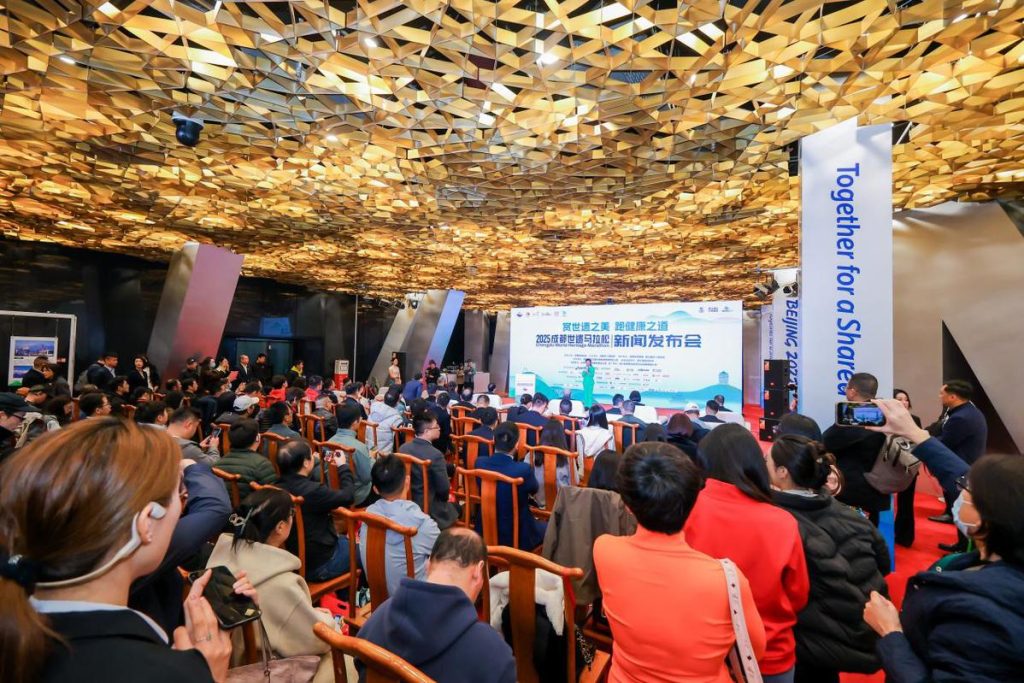Introduction
The World University Games, or Universiade, is a global sporting event that celebrates the achievements of student-athletes from universities across the world. Originally founded in 1959, the event has grown into one of the largest international multi-sport competitions, showcasing the talents of university-level athletes in a variety of sports. In 2025, the city of Chengdu in China will play host to this prestigious event, presenting organizers with the challenge of balancing the core values of university sports with the growing pressures of commercialization.
In recent years, sponsorships, media rights, and corporate partnerships have become increasingly influential in shaping the structure and execution of major sporting events. This commercialization, while essential for funding, often leads to conflicts between the educational and athletic ideals of such events and the profit-driven goals of sponsors. For the 2025 Chengdu Universiade, organizers must find a way to preserve the integrity of the event’s mission—promoting both academic and athletic excellence—while satisfying the financial demands of sponsors.
This article will explore the complex relationship between commercialization and the fundamental principles of university sports. Specifically, it will look at how the 2025 Chengdu Games might navigate this delicate balance, ensuring that the event remains true to its educational roots while engaging with the economic realities of modern sports.
The Rise of Commercialization in Global Sports
Sports, particularly at the international level, have long been intertwined with commercial interests. The global popularity of events such as the Olympics, FIFA World Cup, and the Super Bowl has shown that major sporting competitions can generate billions of dollars in revenue. Sponsorship deals, television rights, merchandising, and advertising are all vital parts of this financial ecosystem, enabling organizers to fund the costs of hosting large-scale events. In many ways, the financial stakes are so high that it is nearly impossible for any major sports event to function without substantial corporate involvement.
While commercialization is not new, it has grown exponentially in recent decades, with the rise of digital media, social media influencers, and new platforms for broadcasting and advertising. For the Universiade, which historically emphasized the connection between academic and athletic achievements, this shift presents a significant challenge. On one hand, the sponsorships that support the event allow it to expand, improve, and remain relevant on the global stage. On the other hand, the increasing influence of these sponsors can sometimes threaten to overshadow the core mission of the Games.
The 2025 Chengdu Universiade will be no exception. With China’s economic power and a rapidly growing market for sports sponsorships, the event is expected to attract significant financial support from both domestic and international corporations. The challenge will be to structure these sponsorships in a way that promotes the event’s values without compromising its educational mission.
The Universiade’s Dual Mission: Athletics and Education
One of the defining features of the Universiade is its unique combination of academic and athletic components. Unlike other international sporting events, such as the Olympics, which are focused primarily on the competition itself, the Universiade also places a strong emphasis on educational development and cultural exchange among student-athletes. This dual focus on academics and athletics is what sets the Universiade apart and makes it so special.
For many student-athletes, the Universiade represents a rare opportunity to compete at an international level while pursuing their academic goals. The event is designed not only to showcase athletic prowess but also to foster international dialogue, promote cultural understanding, and encourage the development of well-rounded individuals. This educational focus is central to the identity of the Universiade and is deeply tied to the values of universities around the world.
However, as the Games have become more commercialized, there has been growing concern that these educational values might be compromised. The increasing influence of corporate sponsors and media outlets has led to debates about whether the event is shifting away from its original mission and becoming more about entertainment and profit than about fostering the development of young people in both an academic and athletic capacity.
The 2025 Chengdu Games will be particularly scrutinized in this regard, as the event is set to take place in a country with a rapidly growing sports industry. The commercial pressures will be intense, but the need to maintain the educational ideals of the Universiade is equally important. How the organizers handle this balance will set a precedent for future editions of the Games.
Sponsorship and Its Impact on the 2025 Chengdu Universiade
Corporate sponsorship has become a key element in the financing of major sporting events, and the Universiade is no exception. For the 2025 Chengdu Games, sponsorship deals will play a critical role in ensuring the success of the event. These deals help cover the costs of organizing the Games, from infrastructure and security to athlete accommodations and broadcasting. In return, sponsors gain access to significant marketing opportunities, including brand visibility, product placement, and the chance to associate their names with a high-profile global event.
While sponsorships bring in vital funding, they also come with certain risks. Sponsors typically seek to maximize their exposure and influence during the event, which can sometimes lead to over-commercialization. Branding everywhere, from the athletes’ uniforms to the stadiums, can detract from the focus on the competition itself. Additionally, sponsors may push for certain marketing strategies or messages that are not aligned with the educational goals of the Universiade.
The key for the 2025 Chengdu Games will be to structure sponsorships in a way that supports the event’s growth without overshadowing its core principles. Organizers will need to ensure that sponsorships align with the spirit of the Games, promoting values like fair competition, student-athlete development, and cultural exchange, rather than simply serving as a vehicle for corporate advertising.

Navigating the Commercial and Educational Divide
The challenge of balancing the commercial interests of sponsors with the educational and athletic values of the Universiade is not unique to Chengdu. Organizers of previous Universiades, as well as other major international sporting events, have faced similar challenges. The key to success lies in finding ways to ensure that sponsorships enhance, rather than detract from, the overall experience.
One potential solution is to involve sponsors in initiatives that promote the educational and cultural aspects of the event. For example, sponsors could fund scholarships for student-athletes, support academic seminars or workshops during the Games, or promote initiatives that foster international collaboration and cultural exchange. By aligning sponsorship opportunities with the educational mission of the Universiade, organizers can create a more harmonious relationship between commercial interests and the core values of the event.
Furthermore, organizers can create guidelines that limit the extent to which sponsors can influence certain aspects of the Games, such as athlete appearances, event scheduling, or media coverage. This will help ensure that the event remains focused on its original goals while still benefiting from the financial support of sponsors.
Conclusion
The 2025 Chengdu World University Games represent a unique opportunity to showcase the potential of university-level sports on the global stage. However, as the event becomes increasingly commercialized, organizers face the delicate task of balancing the financial needs of the Games with its core mission of promoting education and athleticism. Through careful planning, transparent sponsorship agreements, and a commitment to preserving the educational ideals of the Universiade, Chengdu can set a positive example for future editions of the Games, ensuring that they remain a platform for both athletic excellence and academic achievement.






























Discussion about this post